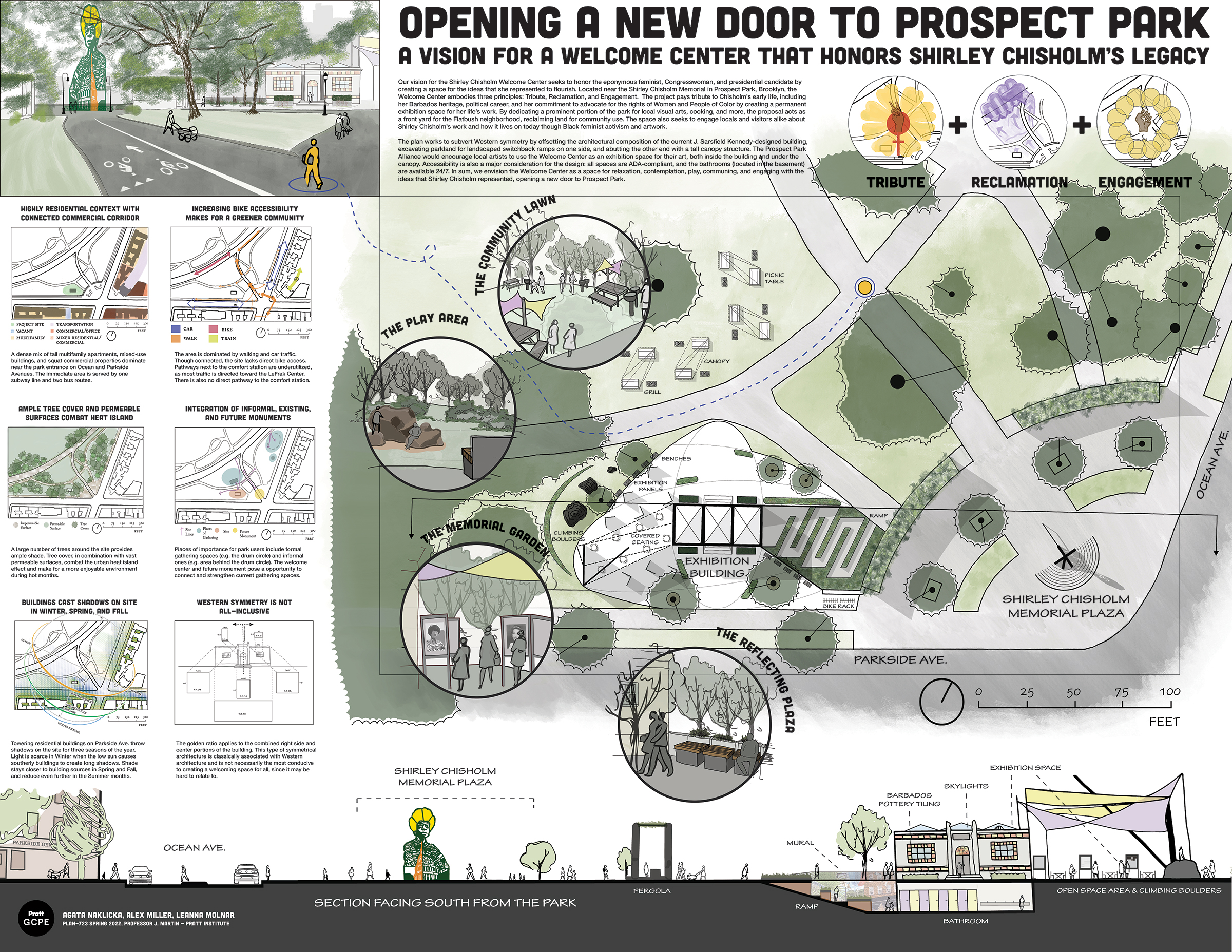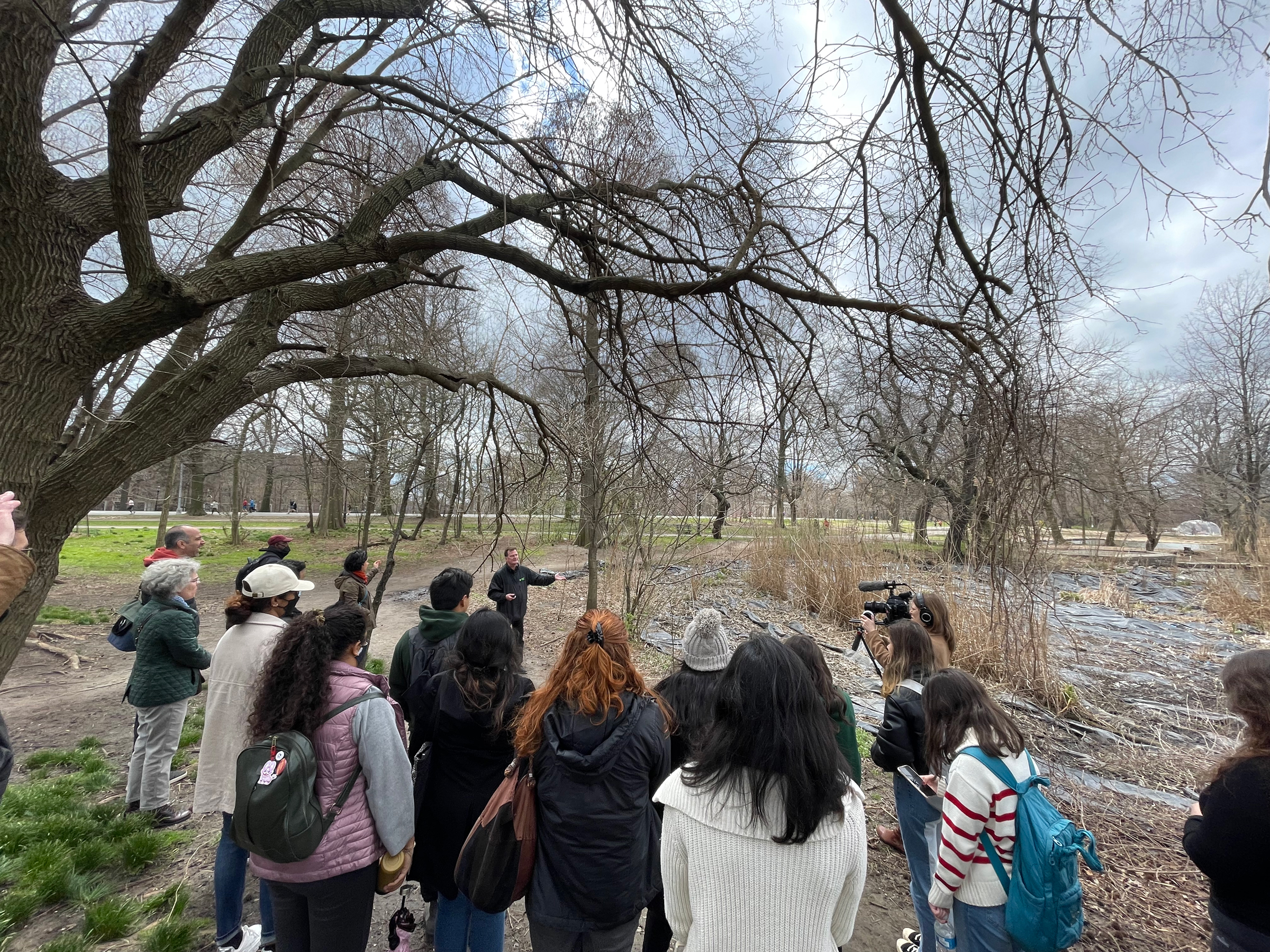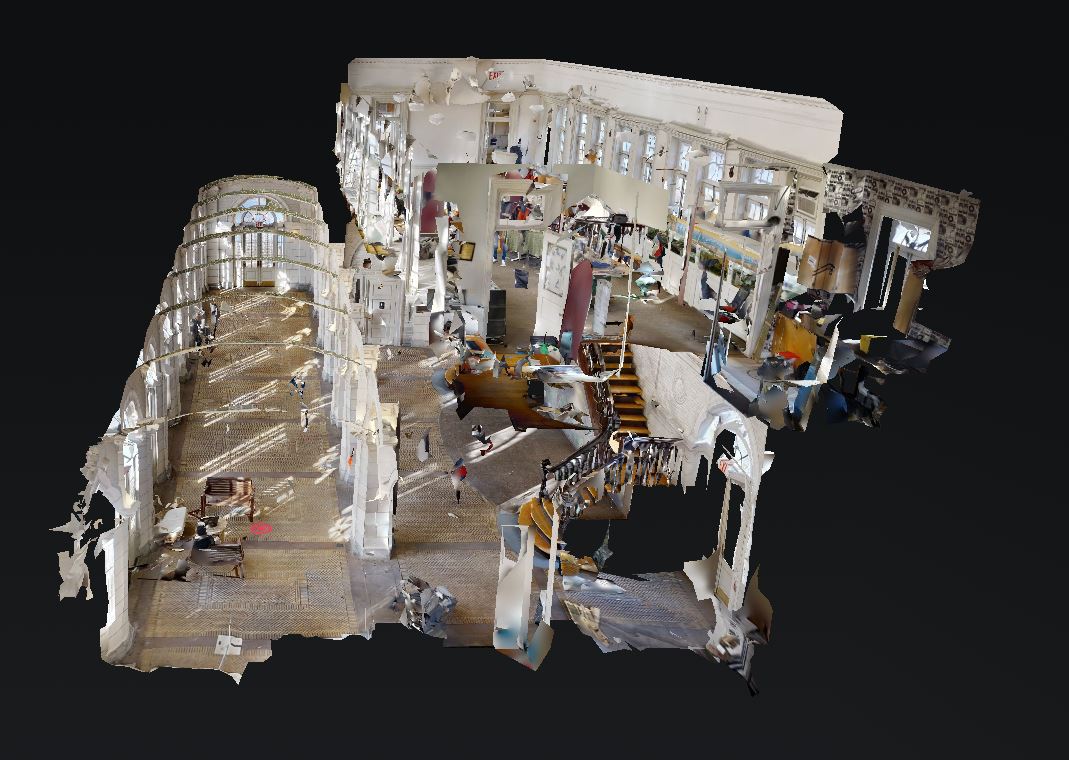Community-Engaged Resiliency Planning For Prospect Park’s Southeastern Quadrant

Eve Baron, Chairperson, Center for Planning and the Environment
Dragana Zoric, Adjunct Associate Professor with CCE, Vicki Weiner, Academic Director of Historic Preservation; Adjunct Associate Professor
School of Architecture
Introduction
Prospect Park’s ecological habitats, recreational facilities, and arts & cultural programming have served the dynamic and diverse community of Brooklyn for more than 150 years. Covering more than 585 acres and bordered by six neighborhoods, the park provides space for respite, active recreation, culturally-based celebrations and events, nature activities, and passive enjoyment. Due to the unprecedented challenges of the pandemic, the park’s typical rate of 10 million visits per year has escalated dramatically, stressing the park’s ecological and physical infrastructures. Coupled with decreasing operating funds in these difficult times, the issues facing park administrators, designers and ecology experts include degradation of forested areas; overuse of open fields and pathways; inappropriate interaction of park visitors with access routes and planted materials; water management challenges; conflict between park users from different communities and cultures; and the decay of a number of historic structures, to name but a few.
Opportunity
Pratt’s School of Architecture provided research, community engagement, technical assistance and strategic planning expertise via faculty and through faculty-guided student projects within and outside the classroom. Working closely with the PPA and the Brooklyn division of the NYC Parks Department, the Pratt team conducted social, economic, ecological and historical research and physical analysis to fill in gaps in PPA’s understanding of historic and existing conditions; community outreach to gather information from and provide education to community members who use the park, and facilitate community sharing; identification of key threats to landscape and built features; and strategic planning to address these threats. To pilot this approach, the team focused on the southeastern section of the park emanating from the Lincoln Road entrance in Prospect Lefferts Gardens, a predominantly Black community that hosts numerous cultural events within and bordering the park.
Pratt’s interdisciplinary approach provided an integrated analysis of the park’s existing facilities, cultural uses, surrounding neighborhoods, ecological challenges, and opportunities to cultivate shared interests and priorities between PPA and the park’s users and potential users. The contributors to this research hope that the work can assist with addressing the park’s ecological and cultural demands in a holistic manner that originates with and emanates from the needs of its user communities and reflects the demands placed upon the park during the pandemic.
Context
The collaboration between Pratt Institute’s School of Architecture (SOA) and the Prospect Park Alliance (PPA) commenced to bring new research and creative problem-solving resources to PPA staff while providing field-based design, facilities management, planning, preservation, placemaking and sustainability planning experiences to Pratt SOA students studying these disciplines. While PPA has a sunsetting strategic plan and has conducted targeted asset-focused community engagement as recently as 2018, when this partnership was created the organization did not have a plan that addresses the park’s ecological and cultural demands in a holistic manner that directly addresses needs of its user communities or responds to the impacts of user demands placed upon the park experienced during the pandemic. Pratt’s interdisciplinary approach provided an integrated analysis of the park’s existing facilities, cultural uses, and ecological challenges, bringing the expertise of a diverse set of professionals and community experts to bear on the park’s most urgent problems.
Chronology
The project was launched in the Spring of 2022 with a field-based design workshop focused on water management issues at the Prospect Park Lake. This “charrette” engaged students from every department of SOA and was led by faculty in architecture, community planning, and sustainable environmental systems. During the Spring 2022 and Fall 2022 academic semesters, graduate and undergraduate courses with PPA as a community client were designed and implemented by SOA faculty in the disciplines of community planning, facilities management, historic preservation, sustainable environmental systems, and urban placemaking. Each course had as its focus a particular ecological, structural, operational or programmatic challenge being faced by PPA in its stewardship and management of the park. Faculty designed their course syllabi around the core challenges, providing instruction and guidance as students conducted research, field studies, and community engagement to better understand the issues at hand. Student work culminated in a great deal of data and analysis, written findings, and recommendations for creative solutions to problems articulated by PPA and further illuminated through research. The pages that follow provide course-by-course summaries of the research, findings and recommendations produced by the courses designed to support PPA in its stewardship of Prospect Park.

